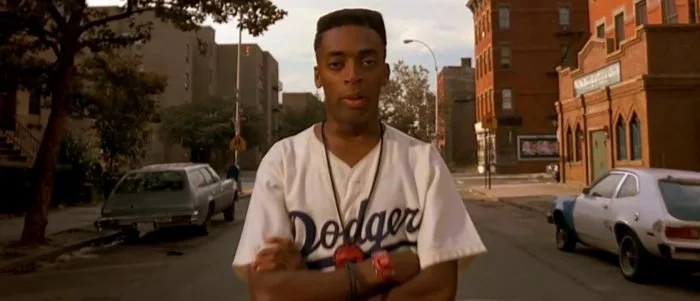Spike Lee's “Do The Right Thing” celebrates its 30th anniversary this weekend and it still packs a wallop. The writer-director’s examination of the racial divide in America is as relevant today as it’s ever been before.
When it first came out, some people were expecting riots and anarchy all over the country, but what we got instead was conversation — the essence of what art can accomplish. It was named the best film of the 1980s in our critics poll.
At a TIFF tribute for his body of work, Spike Lee criticised some critics’ reactions to his 1989 film “Do the Right Thing,” saying “those motherfuckers claimed the film would incite black people to riot”.
Lee acknowledged the support that late critic Roger Ebert gave the film when it world premiered at the Cannes film festival:
“[Ebert] was very crucial to my career … in 1989, in Cannes, [he] got behind me when those motherfuckers in the press were saying that Do the Right Thing was going to incite black people to riot, that that this film could not be shown in the United States, that black people … would see the film and take to the streets.” Adding “I know it’s a long time ago, and you should let some grudges go.”
Lee didn’t let go, naming two writers whose comments sparked the “riots” debate: film critic David Denby and author Joe Klein, whose articles both appeared in the same issue of New York magazine in June 1989:
“David Denby and Joe Klein wrote articles … saying: hope to God this film does not open in your neighborhood, that this film Do the Right Thing will incite black people to tear shit up, take to the streets, like Detroit and Newark.”
Denby, who is 80, is still a part-time staff writer at the New Yorker. His review of “Do the Right Thing,” in New York magazine, said the following: “This immensely skilful, humane, and richly detailed movie about racism in New York suffers from trying to satisfy everyone”. He added: “If Spike Lee is a commercial opportunist, he’s also playing with dynamite in an urban playground. The response to the movie could get away from him.”
Meanwhile, Klein called the film “reckless” and “there’s a good chance … [it] will increase racial tensions”. Klein mentioned the film “opens on 30 June (in not too many theatres near you, one hopes).”
Ebert shrugged off the concerns in his review: “Some of the advance articles about this movie have suggested that it is an incitement to racial violence. Those articles say more about their authors than about the movie.” No riots or civil unrest were reported when the film was screened.
And yet, despite all the praise it has gotten over the years, the countless film schools it has been taught at, “Do The Right Thing” did not even get nominated for Best Picture back in 1990. Ironically, the winner that year was a safe, watered-down portrait of racism, one that Hollywood desperately wanted us to believe in: “Driving Miss Daisy.”






